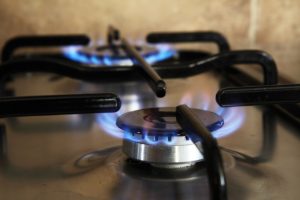Proposed Ban on Natural Gas for New Homes Offers An Expensive Solution for Homeowners
Even in California, the city of Berkeley has a longstanding reputation for radical solutions. Some of the laws to come out of the city have been ground breaking, prompting national conversations about cultural norms, values and expectations. Other city laws have drawn more ire than innovation from others in the state. Last month’s Berkeley City Council decision to ban natural gas hookups for new home construction may have been just such an example of the latter kind of ruling, especially when the California Public Utilities Commission (CPUC) announced they were considering extending this ban to the entire state.
Berkeley Gas Ban As Ticket to Carbon Neutrality?
Many would say Berkeley’s ban itself stems only from good intentions. Indeed, California has some of the most ambitious goals for zero-carbon buildings in the country. In 2018, Governor Jerry Brown himself issued an Executive Order for California to reach carbon neutrality by 2045. This order also included new state standards for energy efficiency in new construction, as well as mandating use of decarbonizing technology statewide.
And yet, this new home natural gas ban will be not enough. The fact is that there were only six new homes built in Berkeley in 2018, and statewide, California only saw 58,000 new single-family homes the same year. Given the statewide goal for cutting carbon emissions from buildings by 40% by 2030, it’s likely that this “new home ban” would become an “all home ban” in short order. In other words, for this target to be achieved statewide in the time allotted, all 7 million existing single-family homes in our state may ultimately be confronted by a total ban on natural gas.
Expectations vs. Reality: Energy Efficiency and Gas Usage
For more than 150 years, Californians have relied upon natural gas as a safe, clean, affordable source of energy in their homes. Our gas bills statewide are quite low. In fact, the price of natural gas per kilowatt-hour has declined almost 40% over the past 20 years. Today, Californians pay 1.34 per peak therm, equivalent to almost 4.7 cents per kilowatt-hour.
Now, the bad news: in contrast, electric prices have not declined and are anything but stable. This year alone, Southern California Edison increased its peak rate for electricity from last year’s 35 cents per kWh to 43 cents per kilowatt-hour. That’s nearly ten times the price for the same energy that homeowners can get from natural gas.
Stable Gas Prices Contrast with Rising Electricity Rates
Moreover, in response to last year’s devastating Thomas and Paradise fires, this year the Sacramento legislature authorized further rate hikes to pay for the damage that downed electric lines had caused during these catastrophes. Next year, pundits suggest California consumers could be paying more than 50 per kWh for their electricity.
The national average price for a kilowatt-hour powered from natural gas? 12 cents. You can see where the problem may arise.
Gas appliances are everywhere in California homes. Gas powered furnaces, cooking ranges; water heaters and clothes dryers are everywhere. Replacing these appliances with electric versions to remain in compliance with new carbon-neutral laws would cost the average home or apartment owner thousands of dollars. Upgrades to electrical service and wiring might also be required, at enormous expense to just about everyone.
But what’s the impact on our environment, you might ask? Would switching over to electricity help cut our carbon footprint? Would cooking on an electric range, for example, reduce our emissions more than frying up bacon on a gas one?
No Real Answers, No Real Savings
The answer? Not really. Most of the energy in California comes from natural gas. Thus, the electricity powering your new, expensive electric stove and dryer and HVAC equipment would still be coming from gas, only now it would be burning at a distant power plant and sent to your home via power lines, at ten times the cost.
Everyone wants our world to be as clean and green as it possibly can be. But getting to that goal is not as easy as a natural gas ban. For many Californians, it would be a disaster.
Concerned about the energy efficiency of your home’s furnace and air conditioner? Call the HVAC experts at Air-Tro. (626) 357-3535.

